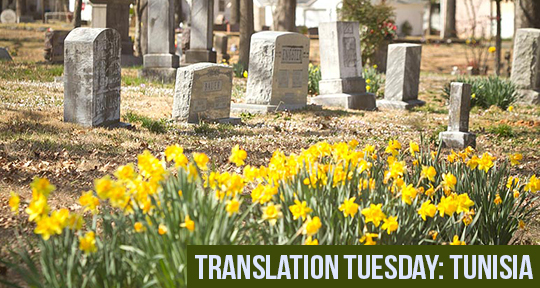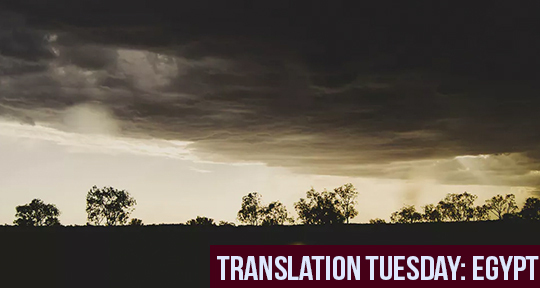For this week’s Translation Tuesday, a son mourning his mother’s death unearths secrets of his family history in Brahim Darghouthi’s short story, “The Ashes of Hell”. Our unnamed narrator finds miscellaneous keepsakes of his parents in a locked box, including letters from his father, a Muslim murdered by the Nazis in an apparent case of mistaken identity. Reflecting upon his mother’s subsequent anti-Semitic resentment, our protagonist recalls a deeper pain beneath this prejudiced demeanour. A short but powerful portrait of compounding grief and the often-destructive ways we deal with it, “The Ashes of Hell” delves into the ethics of family secrets and our obligations to the dead.
When I returned from the cemetery that bleak and fateful morning, I tapped on my mother’s door softly as if she were still lying asleep on her sickbed. I entered on tiptoe and went straight to her antique, oak coffer, decorated with all the colors of the rainbow.
Her distinct fragrance still hung in the air. I stared at the neatly made bed and whispered, “Forgive me, my dear, if I have to violate your secrets today.”
Taking me by surprise, she answered, “The coffer’s key is under the pillow, my darling.”
The scent of heaven immediately struck me as soon as I turned the key in the lock and slowly raised the paneled top. Some small items were neatly arranged inside: sandalwood, amber, small bottles of rosewater, a yellow quince, a small book of dhikr the size of a hand, three new candles, and a fourth that was half melted.
My mother had always hated power switches; to her, they resembled the fangs of rabid dogs. READ MORE…


